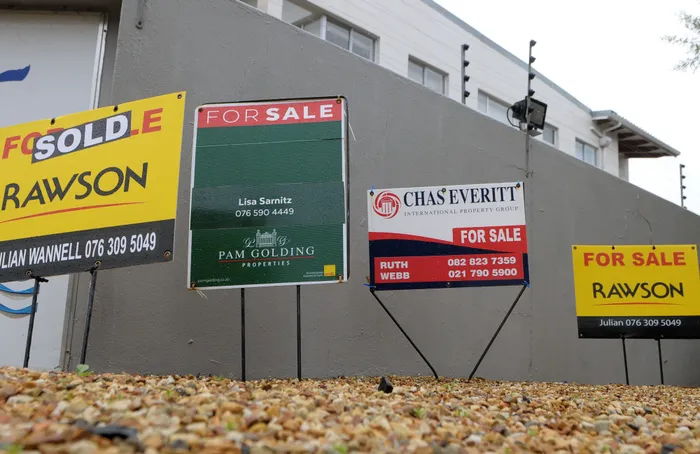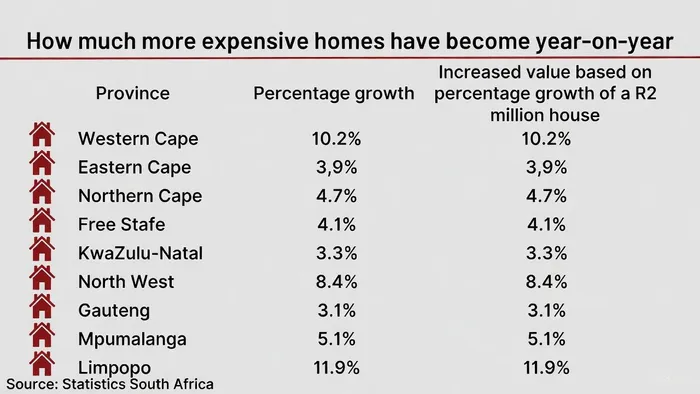How inflation is affecting your home's value

Increasing home prices are pushing younger people out of the market.
Image: Independent Newspapers
A home that was worth R2 million in May would now, technically, sell for R2.132 million.
This is based on Statistics South Africa’s recently released Residential Property Price Index Report for June 2025.
Yet, the price increases were not uniform across all of South Africa, the agency’s latest report shows.
The 6.6% annual inflation rate that pushed the value of a R2 million home up by R132 000 is a national one.
This growth was mainly driven by the Western Cape, which grew 10.2%, and Gauteng, which gained 3.1%.
In terms of metropolitan areas, which grew at an average of 5.7% was, again, mostly driven by Cape Town where homes increased 9% year-on-year, Statistics South Africa figures show.
Limpopo, however, saw the fastest pace in gains, even though it contributes less to Statistics South Africa’s basket and, therefore, wasn’t a key driver of house price increases.
A R2 million home in Limpopo will have gained R238 000 between May and June based on the crude math of smoothing out compounding effects by assuming a starting price of R2 million in May.
Lightstone figures tell a similar story.
Property prices in many areas are now rising faster than inflation, signalling a more resilient upturn.
Annual house price growth accelerated to 4.5% in August 2025, according to the First National Bank House Price Index – the fastest pace since 2022.
Regional momentum is broadening beyond the Western Cape, with Gauteng and KwaZulu-Natal seeing growth.

House price increases are not uniform throughout South Africa.
Image: Grok
“Property remains a long-term investment,” Bradd Bendall, national head of sales for BetterBond has said. “But the conditions going into 2026 are more balanced and predictable than they’ve been in years.”
While housing is set to surge, rising prices are shutting others out.
In South Africa, less than 16 % of households can afford homes above R1.3 million, Henri Le Grange, a certified financial planner at Old Mutual, has said.
Many younger buyers worldwide find owning a home is harder now than it was for their parents, with higher deposits and monthly repayments forcing some into long-term renting and keeping ownership out of reach for those without substantial savings or higher incomes.
Yet, Lightstone data shows that young adults aged 20-35 accounted for almost 30% of all property transactions in 2024, with 17% of them paying between R1 million and R1.5 million.
Interest rate stability is helping buyers, particularly women in their thirties, who make up a significant share of first-time buyers, said BettaBond.
IOL Business
Get your news on the go. Download the latest IOL App for Android and IOS now.
Related Topics: